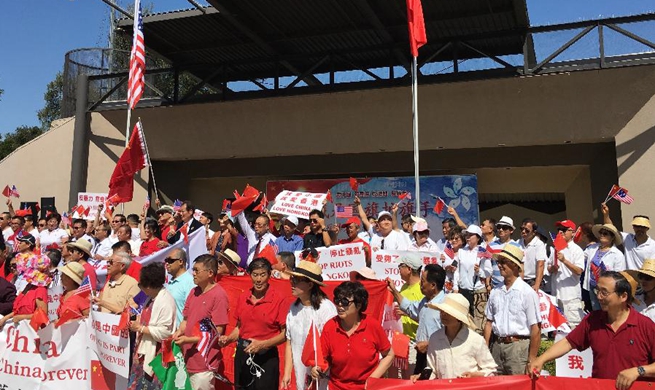LONDON, Aug. 26 (Xinhua) -- By adopting a new method, researchers may be able to tear down the protective wall that surrounds tumors, exposing them to the killing power of the immune system and immunotherapy treatments, according to a study released on Monday by the University of Birmingham.
Immune cells, known as myeloid-derived suppressor cells or MDSCs, send out chemical signals that shield tumor cells from the immune system and from the effects of treatment, and prevent the activation of so-called T cells that can kill tumor cells.
A team led by researchers at the university showed that a protein called CD33 is present on the surface of MDSCs across a wide range of cancers.
They found that an antibody drug called gentuzumab ozogamicin could target CD33, could kill the MDSCs in the blood samples, and could restore the ability of T cells to attack the tumor cells. The drug is already used to treat acute myeloid leukaemia.
"Treatments that work with the immune system to kill cancer often fail because it can be difficult for our body's defense to get access to the tumor cells," said Dr Francis Mussai, lead author of the study and a cancer research UK clinical scientist fellow at the university.
"Our research indicates that giving this antibody drug alongside immunotherapies could dramatically increase the number of patients benefitting from the latest innovations in treatment," he said.
The researchers are now planning a clinical trial to further test the safety and activity of the antibody drug in a wider range of patients.
The study has been published in the open access medical journal EBioMedicine.

















